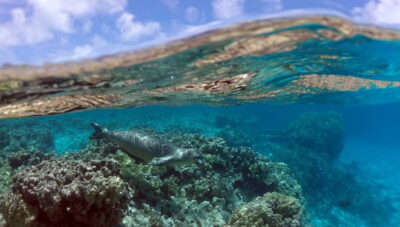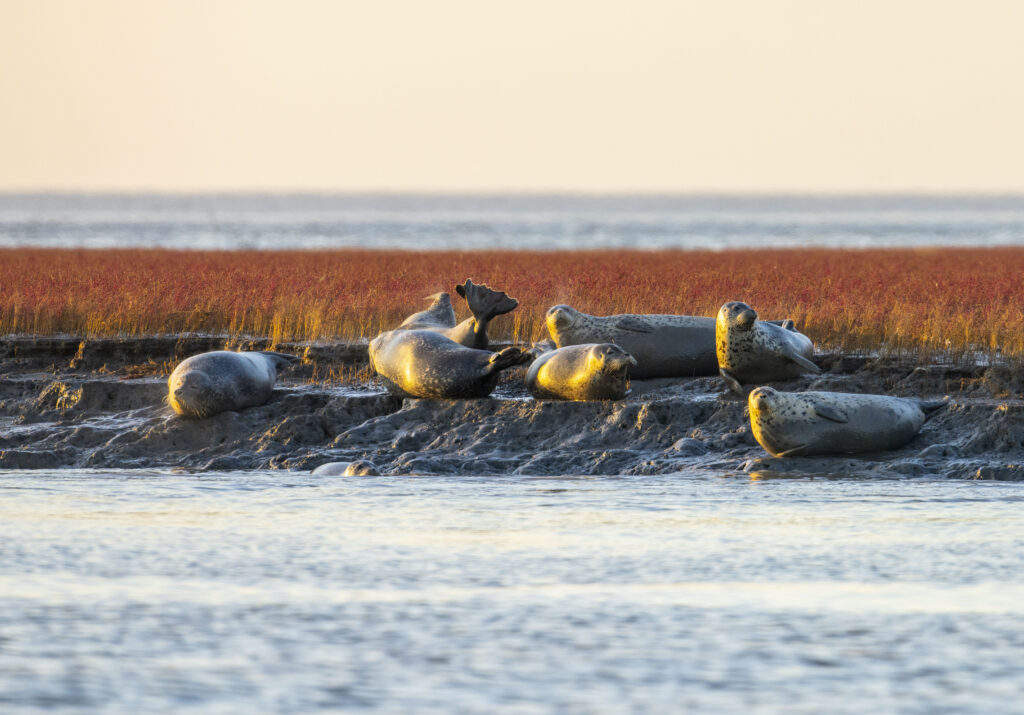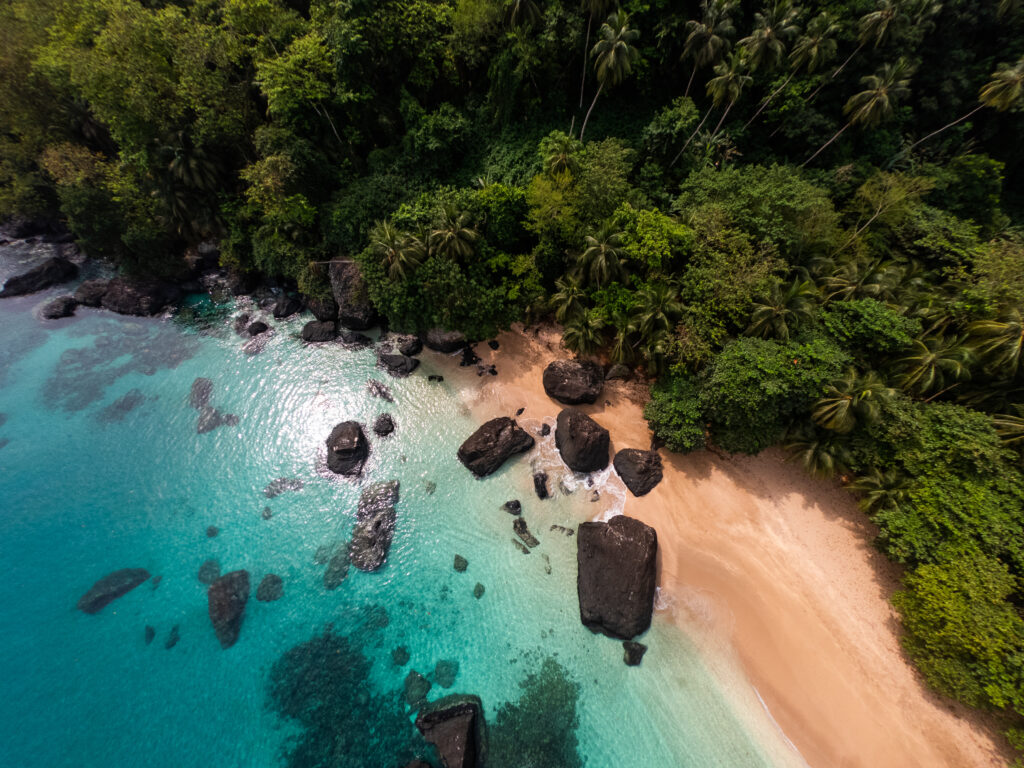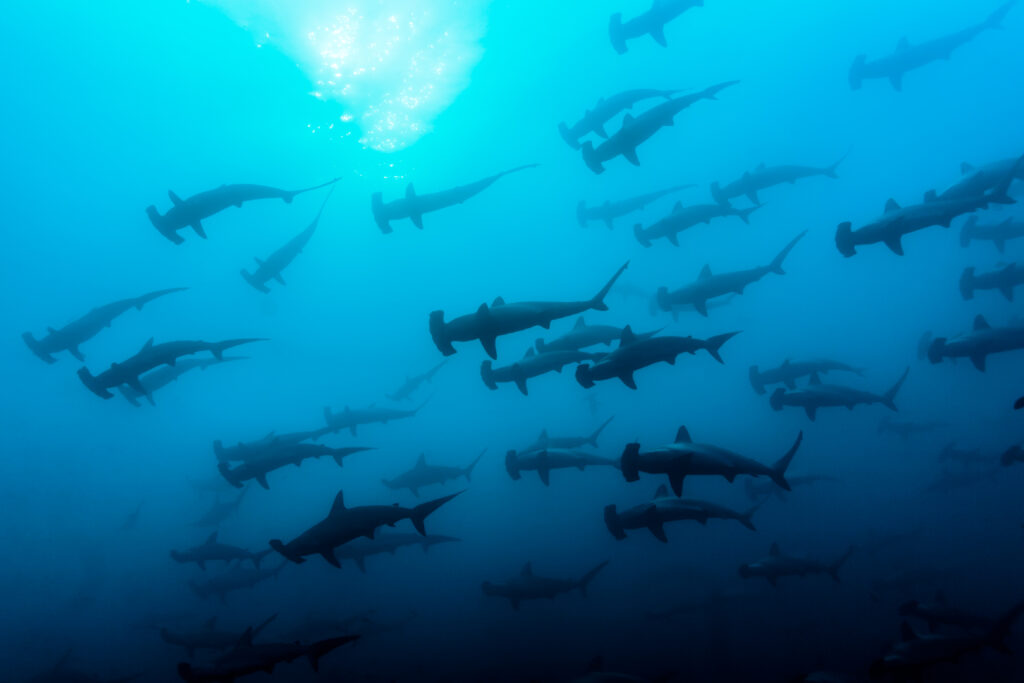
Covering over 70% of the Earth’s surface, the ocean is not just a vast body of water; it’s a lifeline for our planet. From providing the air we breathe to acting as Earth’s climate regulator, the ocean plays a crucial role in sustaining all life on Earth.
However, this important ecosystem is facing unprecedented threats from illegal fishing, climate change, and over-exploitation. In honor of World Oceans Day, let’s explore three diverse, vital marine regions WildAid is protecting from these threats.
Protecting spotted seals, Chinese white dolphins, and other iconic marine life in China
China’s marine ecosystems are a vibrant tapestry of diverse habitats stretching all along its Pacific coastline. These waters are home to iconic marine species such as whale sharks, baleen whales, the Indo-Pacific humpback dolphin (Chinese white dolphin), and the narrow-ridged finless porpoise. The coastal areas provide crucial breeding grounds for vulnerable populations of spotted seals and sea turtles.


We’re working to protect these unique ecosystems by reducing the consumption of illegal ocean wildlife, building public support for ocean conservation, and assisting the government in strengthening the protection of marine reserves. So far, our efforts have promoted an 80% reduction in shark fin consumption and a 50% reduction in the demand for sea turtle products!
We’re also collaborating with partners to test “turtle excluder devices (TED),” which would protect sea turtles from one of the biggest threats to their survival: death from accidental capture in fishing gear. These unique devices allow turtles to swim safely away from nets while guarding fishers’ income. We’re hopeful that China’s coastal fishing fleets will soon begin using these turtle “escape hatches” to help protect sea turtle populations.
São Tomé and Principe: Preserving the ‘Galapagos of Africa’
São Tomé and Principe is known as the ‘Galapagos of Africa.’ Located off Africa’s west coast, this island nation boasts unique and diverse marine ecosystems, including vibrant coral reefs and extensive mangrove forests. Five out of seven of the world’s turtle species (green, hawksbill, leatherback, loggerhead, and olive ridley) nest in São Tomé and Principe and it’s an ideal home for humpback whales.


These habitats face significant threats from overfishing, habitat destruction, and climate change, putting immense pressure on local communities reliant on fishing for their livelihoods.
At WildAid, we believe conservation is a team sport, achieved by working hand-in-hand with local stakeholders and partner NGOs (non-governmental organizations) to protect marine resources sustainably.
By leveraging our expertise in community engagement, capacity building, and law enforcement, we’re working with our partners to establish and sustainably manage a network of marine protected areas (MPAs) around São Tomé and Principe.
Through education, awareness campaigns, and sustainable livelihood programs, we’re empowering local communities to become stewards of their marine environment. Our goal is to safeguard São Tomé and Principe’s vital ecosystems and ensure that future generations can continue to enjoy and cherish the ‘Galapagos of Africa’ for years to come.
Safeguarding a marine superhighway tucked within the Eastern Tropical Pacific
The Eastern Tropical Pacific Seascape is a vibrant marine paradise nestled at the convergence of Costa Rica, Panama, Colombia, and Ecuador’s coastal waters. This unique region, defined by its dynamic tectonic boundaries and complex ocean currents, boasts unmatched biodiversity.


It hosts the most extensive coral reefs in the Eastern Tropical Pacific and is a crucial migratory corridor for blue whales, humpback whales, sea turtles, sharks, and over 300 fish species!
This marine superhighway, known as CMAR, is protected by a series of contiguous MPAs that provide safe passage and habitat connectivity for marine wildlife.
At WildAid, we’re committed to protecting CMAR from illegal fishing, poaching, and other threats destroying fragile ecosystems. In partnership with Costa Rica, Panama, Colombia, and Ecuador, we’re providing expertise and training in marine conservation, enforcement, and surveillance, ensuring the long-term success of this vital region.
You can help turn the tide for our oceans, too!
The time to take action for our oceans is now. With half of the world’s coral reefs destroyed, illegal fishing rampant, and countless marine species facing extinction, the need for conservation efforts has never been greater.
Here are three actions you can take ahead of World Oceans Day:
1. TRIPLE your impact to protect marine wildlife: Donate to support WildAid’s lifesaving marine work before June 8, and your gift will be TRIPLED!
2. Reduce your carbon footprint: Actions like limiting your use of single-use plastics, shopping secondhand, and taking shorter showers can save hundreds or even thousands of pounds of carbon each year, limiting the harmful effects of climate change on our oceans. Visit TheEnvironmentExcuse.org for more tips.
3. Celebrate World Oceans Day with WildAid: Join us for a special livestream on June 6 at 10 a.m. PST/1 p.m. EST. You’ll hear from WildAid team members worldwide about the dynamic media campaigns and award-winning marine protection initiatives we’re running to safeguard ocean life worldwide. Register here.
Stay in touch and get the latest WildAid updates.
SIGN UP
